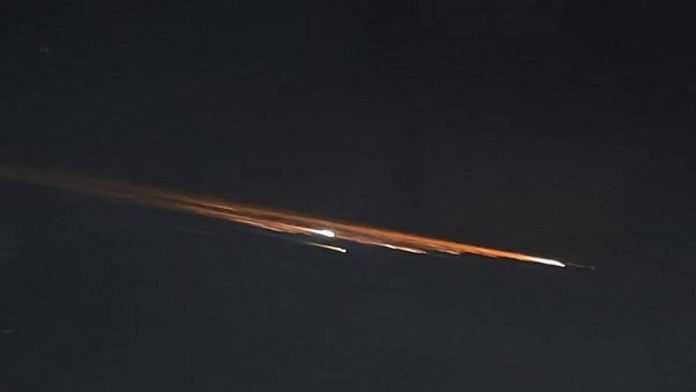Bengaluru: Spanish airports closing due to rocket debris threat, oldest planetary system in our galaxy, invasive mosquitoes causing malaria, and more.
ThePrint brings you a roundup of news from around the globe this week.
Molecular signalling that leads to queasiness and vomiting
We are all familiar with the feeling of queasiness and nausea, and the uneasiness caused before vomiting. Bacteria release toxic chemicals, which quickly cause the body’s process to evacuate stomach contents to kickstart. But how the brain sends signals that it is time to expel through the mouth has been a bit of a mystery.
In a new study, researchers from Tsinghua University in Beijing show that both bacteria and chemotherapy trigger the same pathways in our intestines, setting into motion a cascade of neural messages that lead to queasiness, explains New York Times.
The study was conducted on mice, which is rather unusual for this kind of study, because mice don’t vomit in general. But since the biology of mice is so well understood, researchers stuck to it to understand the mechanism behind vomiting at a molecular and neural level. Read more.
Also read: Armed with science & tech solutions, govt & IIT-Delhi come together to fight air pollution
Oldest planetary dust found in our galaxy
Astronomers have identified the oldest star in our galaxy that is still accreting dust from a protoplanetary disc around it. This star and its planetary system formation has become the oldest to be discovered in our Milky Way.
The team at University of Warwick modeled two unusual white dwarf stars that are surrounded by planetary debris made of rock and ices and dust. One of these is extremely blue, while the other is extremely red. The red one is the oldest ever to be observed in the Milky Way, and is 10.7 billion years old, billions of years older than our sun.
The stars are also metal-rich, and formed at a time when the universe had less metal than it does now, as metals are formed in giant supernovae and kilo novae. Read more at phys.org.
Invasive mosquito causes Ethiopia malaria outbreak
Scientists have found “compelling evidence” that a malaria outbreak in Ethiopia is due to the arrival of an insecticide-resistant species of the mosquito Anopheles stephensi for the first time. The findings add multiple layers of complexity to the already challenging task of controlling deadly malarial outbreaks in Africa and other parts of the world.
The behaviour of this particular species, which arrived in Africa from South Asia, is different from other malaria carriers, making efforts to control the outbreak obsolete for this outbreak. The mosquito is efficient at breeding in human-made water storage systems like barrels and wells, spiking malaria in outdoor urban settings.
The mosquito has caused outbreaks in the past in India, and led to stricter policies on water storage, reports Nature. Read more.
Remnants of Chinese rocket debris causes airspace shut downs
A Chinese rocket debris flew in an uncontrolled fashion across the atmosphere of the Earth for the second time this year, causing airspace shut downs in Spain due to increased risk to flights.
The shutdown in Spain and Catalonia caused delays of 300 flights in 46 airports Friday.
Chinese rocket debris has entered in an uncontrolled manner into the earth’s atmosphere multiple times in the past, with the deadliest incident being damaged rocket fragments hitting buildings in the West African nation of Ivory Coast.
Reuters reported that the piece of rocket ultimately crashed into the Pacific near Mexico. Read more.
(Edited by Poulomi Banerjee)
Also read: Adaptation too slow, COP27 must address loss and damage caused by climate change, says UN



